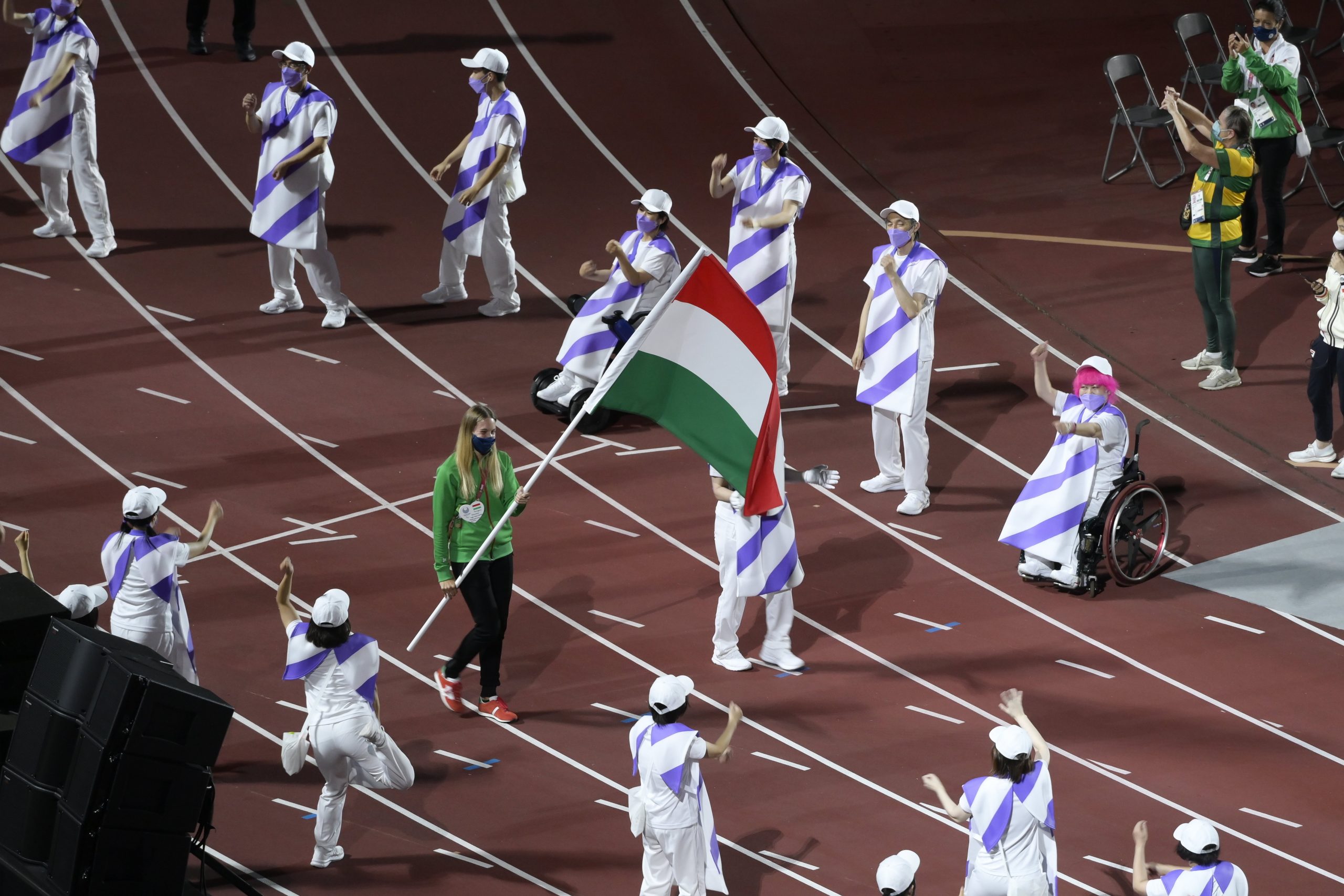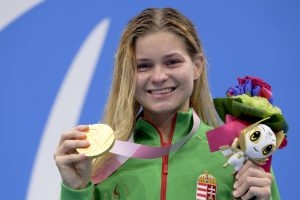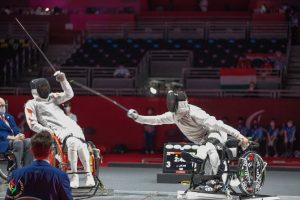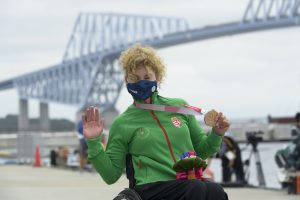
In terms of gold medals, the Tokyo Paralympics has proven to be the second most successful competition ever for Team Hungary. Seven gold, five silver, and four bronze medals eventually put the team in 18th place on the overall medal table, earning some high-class compliments from the domestic para-sport committee’s leader. Let’s see who made it to the podium.
Amarilla Veres claimed the first of the shiniest medals for Hungary after heroically beating her three-time champion, Chinese opponent in the finals of wheelchair fencing (épée, category A).
After London 2012, Péter Pálos managed to fight his way back to the throne in the table tennis S11 category (meanwhile, he also clinched a bronze in Rio), as last Sunday he managed to narrowly overcome his Australian opponent.
And just a mere 26 minutes later, Fanni Illés was able to cross the finish line first in the women’s 100m breaststroke SB4, claiming Hungary’s 150th medal at the Paralympics. She did so after having previously won both the World and European Championships in the same category.
As expected, the latest gold was brought by Luca Ekler, who won the long jump, beating her own world record in the final. And she will have a chance to add other medals to her collection as she stands a good chance both in the 100 and 200 meter races which are still to come.
Two silvers topped off by a gold: just one day after her second 2nd place finish, Zsófia Konkoly managed to claim a gold medal for her and for Hungary. The swimmer came in first in the 100m butterfly S9.
Swimming has seemingly become the most successful sport for Hungary in terms of golds in Tokyo, as similarly to Konkoly, just one day after her silver place finish, Bianka Pap also claimed victory in the 100m backstroke S10.

Three-time medalist Bianka Pap with her gold. Szilárd Koszticsák/MTI
True to tradition (Hungary regularly wins medals at the Olympics in kayak-canoe with the sport having been the most successful one in Tokyo too), Hungary similarly performed well in para-canoeing too. Péter Pál Kiss hit the finish line first in the men’s KL1.
Aforementioned Zsófia Konkoly was the one to initiate Hungary’s medal winnings. On the very first day of the Paralympics, she finished second in the 400m freestyle. Later on she also managed to step up to the second level of the Paralympic podium in the 200m individual SM9 (to finally complement it with a much-desired gold the next day). Along with Bianka Pap (see below), these feats have made Konkoly the most successful member of the Hungarian Paralympic team.
A little later Richárd Osváth joined her with a reportedly heroic performance, after he managed to clinch the silver in wheelchair fencing, men’s foil, category A. This was the 36-year-old athlete’s fourth medal in the Paralympics so far after winning two silvers (both in Rio: in foil A and sabre A), and one bronze (in London, foil A).

Richárd Osváth (right) in action. Image by Bence Szabó /MTI/MPB
Alexa Szvitacs claimed Hungary’s first bronze in table tennis (women’s singles class 9) after narrowly being beaten in the semifinal.
A mere one point difference decided the bronze in women’s foil in wheelchair fencing. Luckily, the Hungarian team, consisting of Zsuzsanna Krajnyák, Éva Hajmási, Boglárka Mező, and Gyöngyi Dani managed to clinch third place.
After shooting started on Monday, Krisztina Dávid was similarly able to finish on the podium after she bagged a bronze in women’s 10m Air Pistol SH1 on Tuesday.
And para-canoeing has added another medal to the collection, actually the last one in Tokyo, as Katalin Varga bagged a bronze on the last day of the Paralympics in Women’s KL2.

Para-canoeist Katalin Varga with the bronze. Image by Szilárd Koszticsák/MTI
Since the Paralympics have been held in the same place as the Olympics (since Seoul 1988), this was the most successful event for Hungary in terms of gold medals. And the second most successful one ever, as in New York 1984 was the only one where the Hungarian team claimed more of the shiniest medals (12), while there have been only four Paralympics where Hungary collected more medals in total.
This performance has risen above the expectations of the Hungarian Paralympic Committee’s (MPB) president too, who had envisioned at least 15 Hungarian medals, including three to five gold before the kick-off of the Games. Consequently, László Szabó was glad, although he noted that in his view luck hadn’t always been on the Hungarian athletes’ side. Despite this, he commented that “Hungarian para-sport has never been as strong as it was in September 2021, this team that was here in Tokyo is the golden team of Hungarian para-sport. A team like never before.”
featured image: fresh champion Luca Ekler bearing the Hungarian flag at the closing ceremony; via Szilárd Koszticsák/MTI